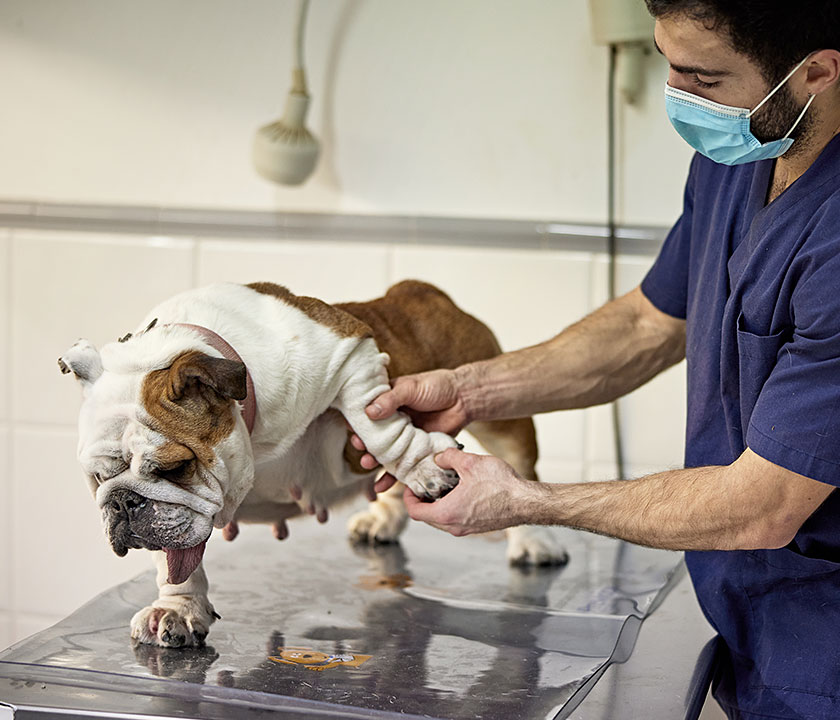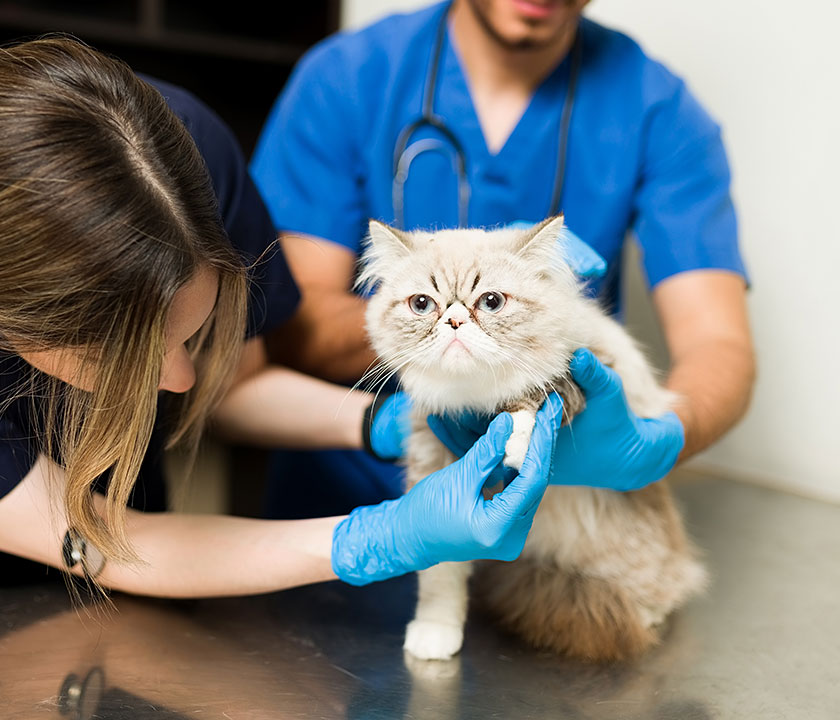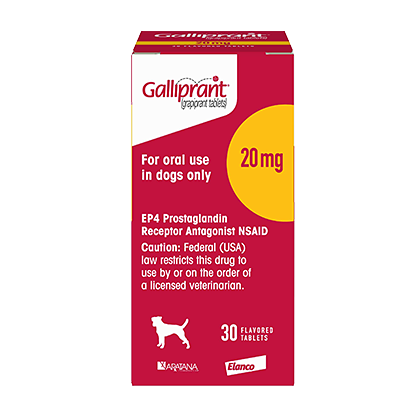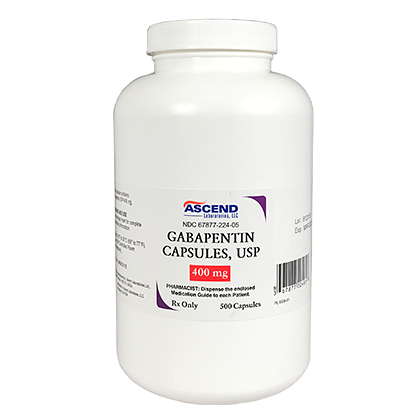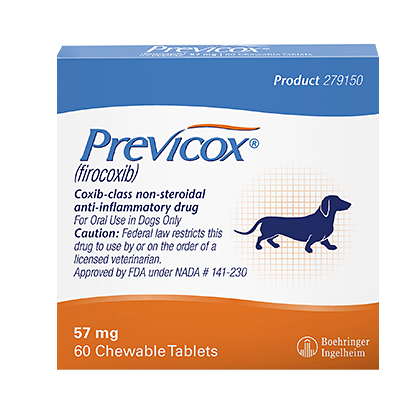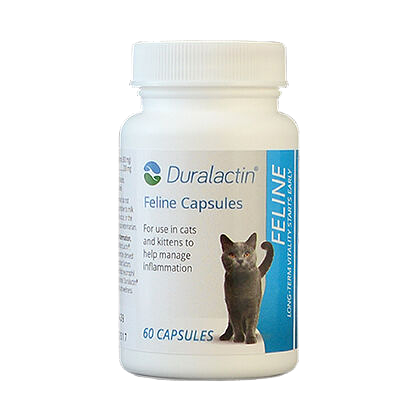What Is Arthritis in Dogs and Cats?
How Joint Pain & Inflammation Affects Pets
Arthritis is pain, swelling, and inflammation in one or more joint.
While arthritis can affect pets of any age and has several known causes, including traumatic injury, infection, and autoimmune disease, the most common type is osteoarthritis, associated with aging.
Over 80% of dogs and cats will eventually develop osteoarthritis in one or more joint by the time they reach their senior years.
Although joint deterioration is essentially unavoidable for pets, and there is currently no cure, with early intervention, it is possible to manage pain and slow the progression of arthritis.
How Osteoarthritis Develops in Pets
Your pet's joints are where two or more bones meet. A firm, slippery layer of connective tissue called cartilage prevents friction between bones and absorbs shock.
Around the joint, there's a layer of connective tissue called the joint capsule, which forms a seal around the joint, and contains synovial fluid. Synovial fluid lubricates the joint, and it also carries nutrients to the cartilage and removes waste products.
In pets with osteoarthritis, everyday wear and tear causes the cartilage to become thinner and stiffer, and it starts to develop cracks.
The "joint space" or space between bones narrows. The decreased cushioning may allow painful friction between bones when your pet moves.
Joint inflammation prompts increased production of synovial fluid, which manifests as swelling in the joints. Excess bone growths called bone spurs may also develop at the joint.
Managing Arthritis in Pets
While it's true that most pets will develop some clinical level of arthritis during their lifetime, not all pets will experience the same amount of pain and inflammation.
Osteoarthritis worsens over time, but with nutritional support, pain management, and healthy lifestyle choices, it's possible to slow the progression, control pain, and protect your pet's quality of life.
Dogs and cats suffering from arthritis should avoid high-impact activities that put unnecessary strain on the affected joints. However, this does not mean that they should not exercise. With early treatment and pain management, exercise is not only possible, but highly beneficial to pets with arthritis.
For pets with arthritis, light to moderate activity can help:
- Strengthen muscles that surround and support the joint
- Maintain or achieve a healthy weight
- Stimulate circulation, bringing oxygen and nutrients to joints
- Increase movement of joint-lubricating synovial fluid
Pain management is essential to keeping arthritis pets on the move. Not only will a pet in pain become reluctant to exercise, they may also adjust their gait to compensate for limited mobility, which can lead to secondary orthopedic issues.
Pain Management for Pets with Arthritis
While there's no cure for osteoarthritis, and loss of cartilage cannot be reversed, there are many treatment options available to slow the progression of joint deterioration and manage pain.
Non-steroidal anti-inflammatory drugs (NSAIDs) are widely used to manage pain and inflammation in pets on a long-term basis. NSAIDs for pets are available both over-the-counter and with a prescription. Pain medications for humans should never be used for pets, as they often contain ingredients that are not safe for cats and dogs.
Dietary supplements can be given in conjunction with other therapies. Certain ingredients have been shown in studies to help slow cartilage breakdown. Omega-3 fatty acids, and glucosamine/chondroitin sulfate and avocado/soybean unsaponifiables (ASU), found in veterinarian-recommend joint supplements, work together to support joint health. Ingredients with anti-inflammatory properties like green tea and turmeric can help control painful swelling.
Other treatment options, including injections, water therapy, acupuncture, massage, laser therapy, warm compresses, can all be effective for pets with arthritis.
Protect Joint Health and Manage Arthritis in Pets
PetMeds® carries veterinarian-recommended pet joint support supplements, over-the-counter and holistic pain management aids, prescription medications, and more to support your pet's joint health.
Shop now to get everything your pet needs delivered to your doorstep.
Never Miss A Dose With PetMeds® AutoShip
Save 35% OFF your first AutoShip order | Use code SAVE35 in cartFrequently Asked Questions about Arthritis in Pets
Still have questions? Learn more with our free Pet Health Advice resource center or talk to your veterinarian about arthritis in pets.




























